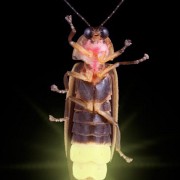Huntington's Disease (HD) was originally called Huntington's Chorea. "Chorea" is a term derived from the Greek word for "dance" or "choreography". Some dance.
As the disease progresses, the individual's body and facial movements become jerky and uncontrollable. Muscles spasm and contract. Movements fluctuate between being slow and clumsy, or jerky and spastic.
Walking is unsteady, with deteriorating coordination and balance. The sufferer may stumble and fall without warning.
The face grimaces and twitches, with jaws clenching and teeth grinding. Swallowing becomes difficult. Speech is slurred.
And that's just the physical effects.
Mental abilities begin to decline. Memory loss and forgetfulness increase, and concentration falters. Judgment and decision-making is affected.
Eventually, the individual may be unable to recognize the people and things that have been part of their lives. Confusion, disorientation and hallucinations, lead the way to dementia.
Emotional changes occur. Personality is affected. Some individuals may become more pleasant, although others may experience deepening anger, depression, or hostility.
HD destroys neurons (brain cells) in a part of the brain called the basal ganglia. This area controls our thinking (cognition), speech and movement.
Huntington's Disease is genetically passed on by one or both parents. Any child of a parent with the disease has a fifty-fifty chance of getting the gene.
If a child inherits this gene, Huntington's is inevitable. If the child does not inherit the gene, they cannot develop HD, nor can they pass it on to their own children.
HD usually begins to make itself known between the ages of 30 and 50 years. A minority of cases affect children, whose symptoms may mimic Parkinson's Disease, with rigid muscles and tremor. Their life expectancy will be short, usually ending before adulthood.
There is no cure for Huntington's Disease. The course of the disease will run approximately 10 to 25 years after onset, ending in death. Most patients will die of medical complications of HD, such as choking, infections or pneumonia.
Researchers are searching for ways to slow both onset and progression. Ultimately they hope to find a cure.
Treatment also focuses on ways of lessening and delaying the severity of symptoms, making life more comfortable. Foods and supplements that feed the brain, aid memory, and enhance the immune system are emphasized.
Exercise is encouraged. Physical, occupational and speech therapy may be helpful. Medications may be recommended.
Emotional support is essential, for those suffering from Huntington's Disease, and for the people who love them.
Resources:
What is Huntington's Disease (HD)?
http://www.hdsa.org/about/our-mission/what-is-hd.html
Huntington's Disease: Symptoms, Treatment, Research, and Support
http://www.helpguide.org/elder/huntingtons_disease.htm
Huntington’s Chorea
http://insidesurgery.com/2010/02/huntingtons-chorea
Huntington's disease
http://www.nlm.nih.gov/medlineplus/ency/article/000770.htm
NINDS Huntington's Disease Information Page
http://www.ninds.nih.gov/disorders/huntington/huntington.htm
Huntington's Chorea and Sydenham's Chorea: Two Major Forms of Chorea
http://www.associatedcontent.com/article/2354268/huntingtons_chorea_and_sydenhams_chorea.html?cat=70
Visit Jody's website and blog at http://www.ncubator.ca and http://ncubator.ca/blogger





Add a CommentComments
There are no comments yet. Be the first one and get the conversation started!